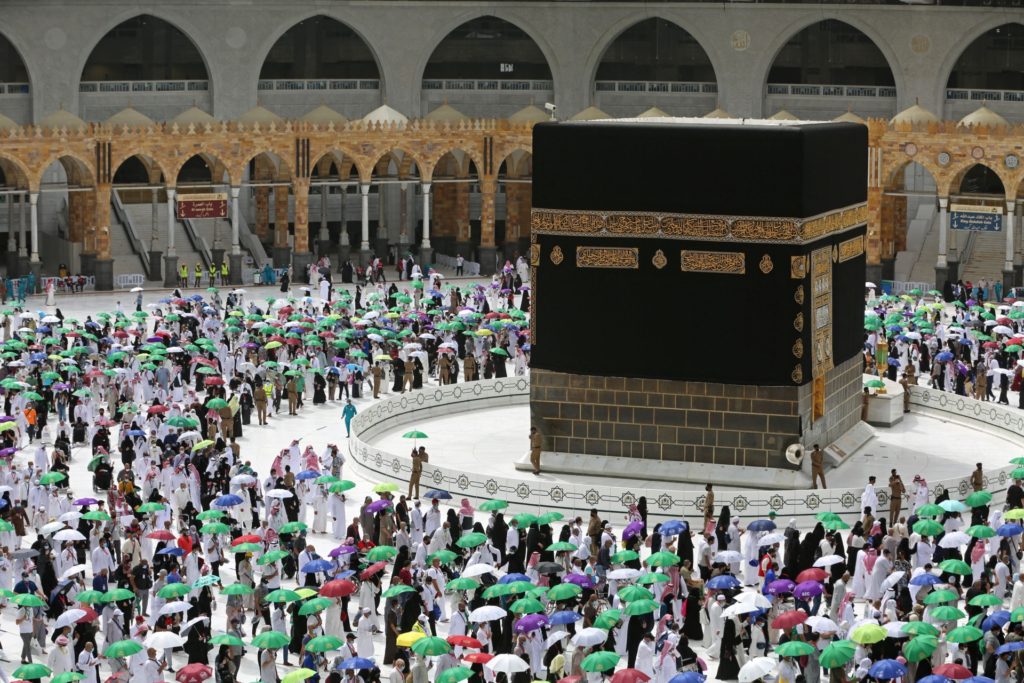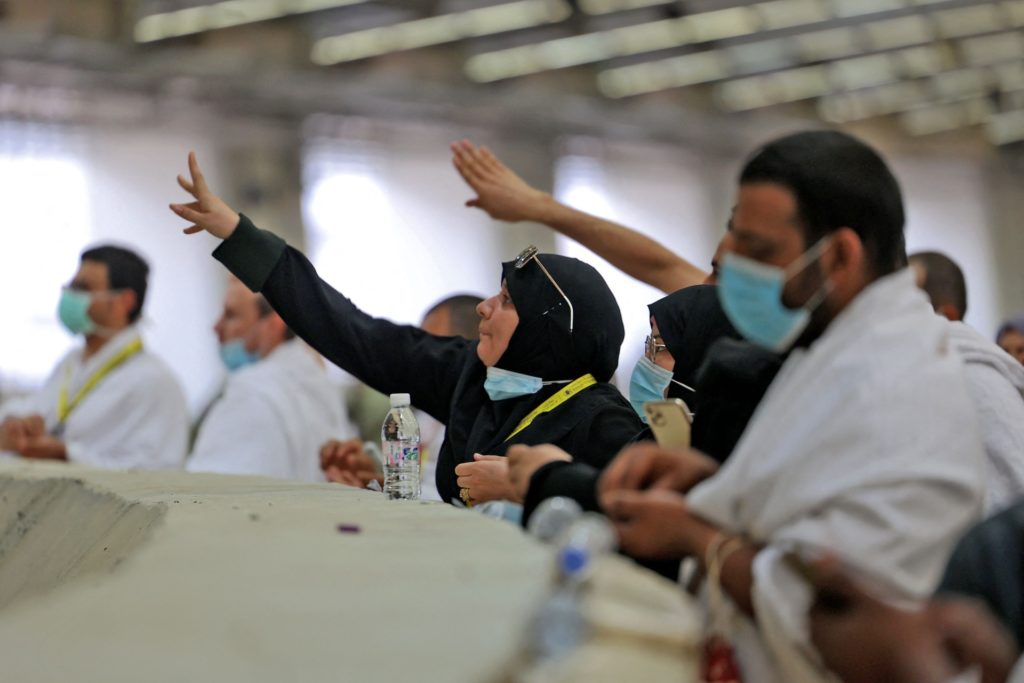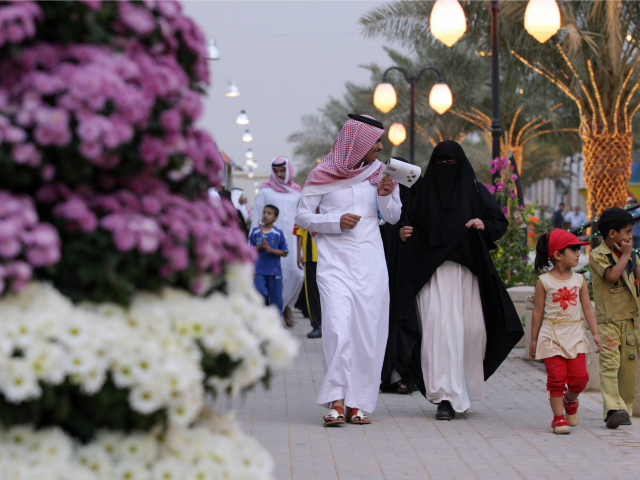Saudia Arabia will ban all citizens and residents unvaccinated against the Chinese coronavirus from entering nearly all public spaces starting August 1, the Kingdom’s Ministry of Municipal and Rural Affairs announced Tuesday.
“In continuation of the ministry’s efforts to protect the public’s health, it is required to vaccinate workers and visitors [who work in or will enter] a number of municipal establishments,” the ministry said in a statement issued July 20, referring to Chinese coronavirus vaccinations.
The municipal establishments banning unvaccinated people from entry starting August 1 include “malls, shopping centers, retail stores, and markets,” according to the press release.
“People will also need to show proof of vaccine to be allowed entry into restaurants, cafes, men’s barbershops, beauty salons, [and] wedding and party halls,” Al Arabiya reported on July 21.

Worshippers perform the farewell tawaf (circumambulation) around the Kaaba, Islam’s holiest shrine, at the Grand mosque in the holy Saudi city of Mecca on July 22, 2021, marking the end of this year’s Hajj. (Photo by -/AFP via Getty Images)
The Saudi Press Agency (SPA) on May 18 first reported on the Saudi government’s plan to ban citizens and residents unvaccinated against the Chinese coronavirus from “any governmental, private, or educational establishments,” as well as from public transportation, beginning August 1.
“Vaccination will also be required to enter any economic, commercial, cultural, scientific, or social events and activities, as well as to any entertainment or sports activities,” SPA revealed at the time.
Starting August 1, the Saudi government will use its own “Tawakkalna” health app “to check the immunization status of citizens and residents,” according to Al Arabiya.
Saudi Arabia’s interior ministry announced this week that all citizens and residents of the Kingdom would be required to receive two doses of a Chinese coronavirus vaccine before embarking on international travel beginning August 9.
“The new requirement will not be applied to children under the age of 12 provided that their travel insurance policy covers expenses relating to COVID-19 [Chinese coronavirus] and is pre-approved by the central bank of Saudi Arabia,” Al Arabiya, a Saudi news outlet, reported on Monday.
“People who were infected by the virus in the last six months and those who were infected with COVID-19 [Chinese coronavirus] but received the first dose of the vaccine are also exempt,” according to the July 19 report.

Muslim worshippers cast pebbles during a symbolic stoning of the devil ritual, as part of the Hajj pilgrimage in Mina, near Saudi Arabia’s holy city of Mecca, on July 20, 2021. From first light, small groups of pilgrims made their way across the Valley of Mina near Mecca in western Saudi Arabia to symbolically “humiliate” the devil at the Jamrah al-Aqaba mosque. (FAYEZ NURELDINE/AFP via Getty Images)
Saudi Arabia currently administers three different coronavirus vaccines to its citizens as part of its state-run Chinese coronavirus inoculation drive. The Kingdom began using a two-dose coronavirus vaccine produced by the U.S.-based multinational pharmaceutical company Pfizer in December 2020. Saudi health officials approved another coronavirus vaccine made by a U.S.-based pharmaceutical company, Moderna, on July 9. Both Pfizer and Moderna’s Chinese coronavirus vaccines rely on mRNA technology.
Saudi Arabia has further approved a Chinese coronavirus vaccine developed by the British-Swedish multinational pharmaceutical and biotechnology company AstraZeneca, for use in the country. AstraZeneca developed its coronavirus vaccine together with Oxford University. The inoculation uses adenovirus-vectored technology.
An adenovirus-based vaccine “is made from a weakened version of a common cold virus (known as an adenovirus) from chimpanzees. It has been modified to contain genetic material shared by the coronavirus — although it can’t cause the illness,” according to a report on AstraZeneca by the BBC. “Once injected, it teaches the body’s immune system how to fight the real virus.”

COMMENTS
Please let us know if you're having issues with commenting.